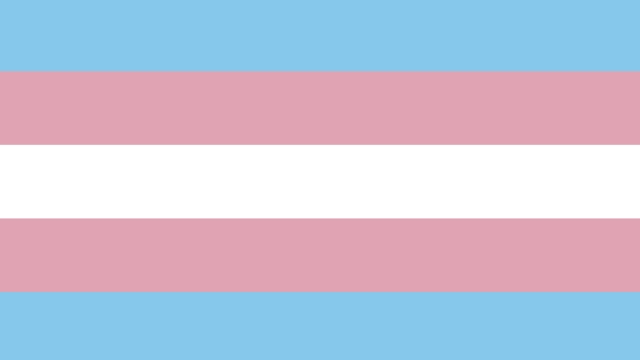Today, HRC responded to the release of the Federal Bureau of Investigation’s (FBI) Hate Crime Statistics for 2015. Statistics on bias-motivated incidents based on gender identity — added for the first time in 2013 — have increased from 31 reported to the FBI in 2013 to 114 in 2015. While growing, the number likely only represents a fraction of such cases given that thousands of law enforcement agencies throughout the country did not submit any data.

The report comes during a troubling uptick of violence after the election. Just yesterday, media reported in North Carolina that a 24-year-old transgender woman was brutally attacked by three people with a hatchet. North Carolina has been ground zero for a debate over transgender equality following Gov. Pat McCrory signing the dangerous and hate-filled HB2 into law, which targeted transgender people and prevented cities and towns from passing LGBTQ-inclusive non-discrimination laws. North Carolina also lacks hate crimes laws that protect the LGBTQ community.
The data also shows a 3.5 percent increase in bias-motivated incidents due to sexual orientation — 1,053 incidents in 2015.
“Transgender people, especially transgender women of color, continue to be targeted in vicious attacks all throughout this country. The simple act of walking down the street is cause for real fear and anti-transgender political rhetoric only serves to embolden those who harass and intimidate people simply because of who they are,” said HRC President Chad Griffin. “The tragic impact of hate crimes is felt by families, friends and entire communities, creating fear and instability that ripple across the country. With a wave of bias-motivated harassment in the wake of the recent election, HRC will continue to push for more accurate reporting of hate crimes to the FBI so that we truly understand the full scope of the violence.”
The Southern Poverty Law Center (SPLC) has reported more than 300 incidents of harassment or intimidation since the election of Donald Trump last Tuesday night.
While the FBI data is helpful, it does not paint a complete picture of hate crimes against LGBTQ Americans. Current statistics only provide a partial snapshot of hate crimes in America because reporting these incidents to the FBI is not mandatory. In fact, while the number of hate crimes reported increased from 2015 to 2014, the number of jurisdictions reporting decreased from 15,494 to 14,997.
Thousands of law enforcement agencies across the country did not submit data – including jurisdictions with populations of more than 250,000 people. The vast majority (88%) of the agencies that did participate reported zero hate crimes. This means that law enforcement in those participating agencies – including cities with large populations – affirmatively reported to the FBI that no hate crime incidents occurred in their jurisdictions. Approximately 3,400 jurisdictions failed to report any data, including 21 cities with populations with over 100,000 people.
Since the passage of the Matthew Shepard and James Byrd Jr. Hate Crimes Prevention Act (HCPA), HRC has worked with the FBI to help update the agency’s crime reporting, from training materials to providing details on recent hate crimes when they occur. HRC continues to press for improved reporting that is crucial to understanding the state of hate violence in America. Key improvements would include:
-
Amend the HCPA to mandate reporting. HRC supports mandating local jurisdictions report hate crimes statistics. This would provide a more complete picture of hate based violence in the United States and allow for targeted efforts to address areas with high levels of hate crimes.
-
Passage of state laws that protect LGBTQ individuals from hate crimes. The HCPA only protects LGBTQ victims from violent crimes where the federal government has jurisdiction over the underlying criminal act, regardless of the bias motivation. Since most crimes in the U.S. are still prosecuted at the state level, LGBTQ victims remain particularly vulnerable to hate crimes in the states that do not provide protections for individuals based on sexual orientation or gender identity. Passage of state level HCPAs allows states to prosecute hate crimes without a federal nexus and in many instances crimes against property. Sixteen states plus the District of Columbia have laws that address bias-motivated crimes on the basis of sexual orientation and gender identity.
-
Expand education and training initiatives. The government must complement tough laws and vigorous enforcement – which can deter and address violence motivated by bigotry – with education and training initiatives designed to reduce prejudice. The federal government has an essential role to play in helping law enforcement, communities, and schools implement effective hate crimes prevention programs and activities. Education and exposure are the cornerstones of a long-term solution to prejudice, discrimination and bigotry against all communities. A federal anti-bias education effort would exemplify a proactive commitment to challenging prejudice, stereotyping, and all forms of discrimination that affect the whole community.
This week, HRC marks Transgender Week of Awareness, dedicated to the progress, continued challenges, and unfinished work in the fight for transgender equality. Throughout the week, HRC will dedicate each day to urgent and important issues facing the transgender community, including support for youth and families, workplace equality, access to life-saving and inclusive health care, and combatting violence against the transgender community. The week concludes with with Transgender Day of Remembrance on November 20 when the community comes together for vigils around the country to honor those lost in the past year. Learn more at hrc.im/TransAwarenessWeek.
Enviroshop is maintained by dedicated NetSys Interactive Inc. owners & employees who generously contribute their time to maintenance & editing, web design, custom programming, & website hosting for Enviroshop.

